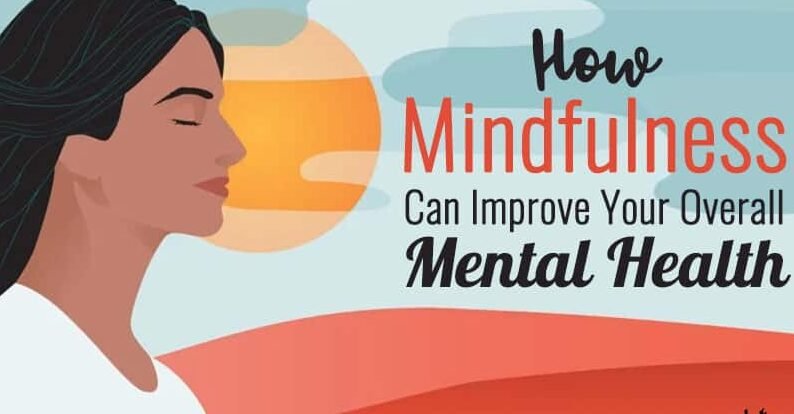
The concept of mindfulness has gained immense popularity in the mental health space. This can be attributed to how the practice of being present and in the moment has been shown to improve mood, reduce stress, and help people find more meaning in their lives. But what exactly is mindfulness?
Mindfulness as defined by health professionals is the practice of being present and in the moment. This practice of being present and aware can actually have a positive effect on your mental health and overall well-being. Mindfulness means paying attention to what’s happening here and now, rather than what has already happened or might happen. Practicing mindfulness helps us stay more in control of our emotions. We can react less emotionally to situations when we take a step back to notice how we feel instead of immediately reacting from that emotional state!
A concept that has recently gained popularity in the mental health space is “mindfulness.” But what exactly is mindfulness?
Mindfulness is a concept that has recently gained popularity in the mental health space. It refers to the ability to be present in your thoughts, feelings and actions while also maintaining an awareness of what’s going on around you.
In this article we will discuss how mindfulness might help with mental health.
Mindfulness as defined by health professionals is the practice of being present and in the moment.
Mindfulness is the practice of being present and in the moment. It’s about taking a few minutes each day to focus on what you are doing, rather than what you think or feel.
It can be as simple as taking time out of your day to notice your breath, or noticing how your body feels when sitting still for an extended period.
This practice of being present and aware can actually have a positive effect on your mental health and overall well-being.
Mindfulness is a skill that can be learned. It takes practice, but it’s worth the effort.
It’s about being present and aware of what is happening in the present moment without judgment or evaluation. The idea is to simply notice how you feel, observe your thoughts, and then come back to the present moment again.
Mindfulness helps us stay more in control of our emotions by identifying triggers for emotional reactions so we can learn how to avoid them in future situations (for example: if someone says something rude at work).
Mindfulness means paying attention to what’s happening here and now, rather than what has already happened or might happen.
Practicing mindfulness helps us stay more in control of our emotions. We can react less emotionally to situations when we take a step back to notice how we feel, instead of immediately reacting from that emotional state.
Mindfulness is the practice of being present and aware of what is happening in the moment. It helps us to be more in control of our emotions, which can make a huge difference when it comes to your mental health.
Mindfulness can be learned through meditation, but it doesn’t have to take any time at all! You can practice mindfulness by simply taking time out each day—even if it’s just five minutes—to focus on yourself instead of focusing on something else (like what happened yesterday).
Mindfulness also helps us to identify triggers for emotional reactions.
This makes it easier to come up with strategies for dealing with these triggers before they lead to a full-blown emotional meltdown or crisis!
Mindfulness also helps us to identify triggers for emotional reactions. This makes it easier to come up with strategies for dealing with these triggers before they lead to a full-blown emotional meltdown or crisis!
When we’re stressed out, anxious or upset, the first thing we do is feel bad about ourselves. We may even start blaming ourselves for being so upset and angry (though this isn’t always true). The next thing we do is try to figure out how we can fix things. But what if there was another way? What if instead of trying so hard every time something goes wrong in our lives—and feeling guilty about everything—we could just accept that things happen sometimes? And then move on from there?
Practice mindfulness
Focusing on your breath when you feel stressed or anxious; take some time out from whatever it is you’re doing and breathe in deeply from the diaphragm for five seconds before exhaling, repeating as needed until calmed down.
Conclusion
Mindfulness is a wonderful way to take control of your mental health. It can help you think more clearly, feel better physically and emotionally as well as improve relationships with others. If you put it into practice, mindfulness will not only help you stay more in touch with yourself; it could also help your partner or children understand what’s going on when they see how much happier you are!





